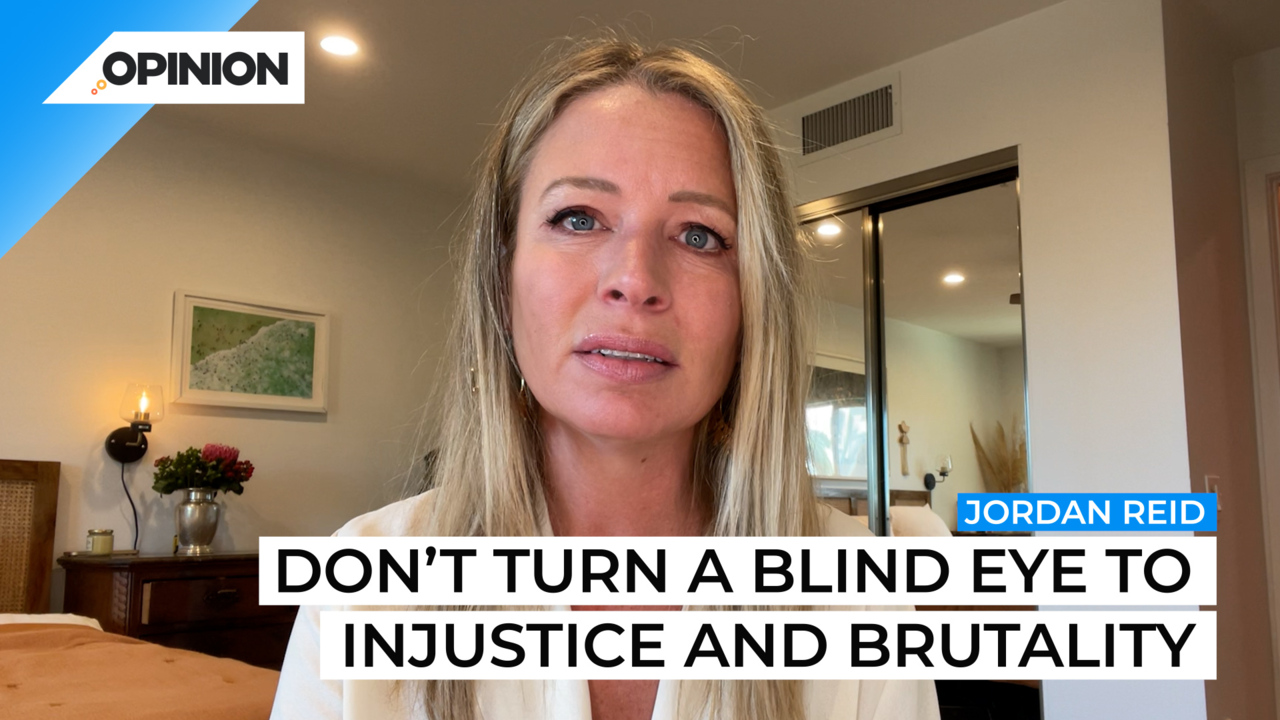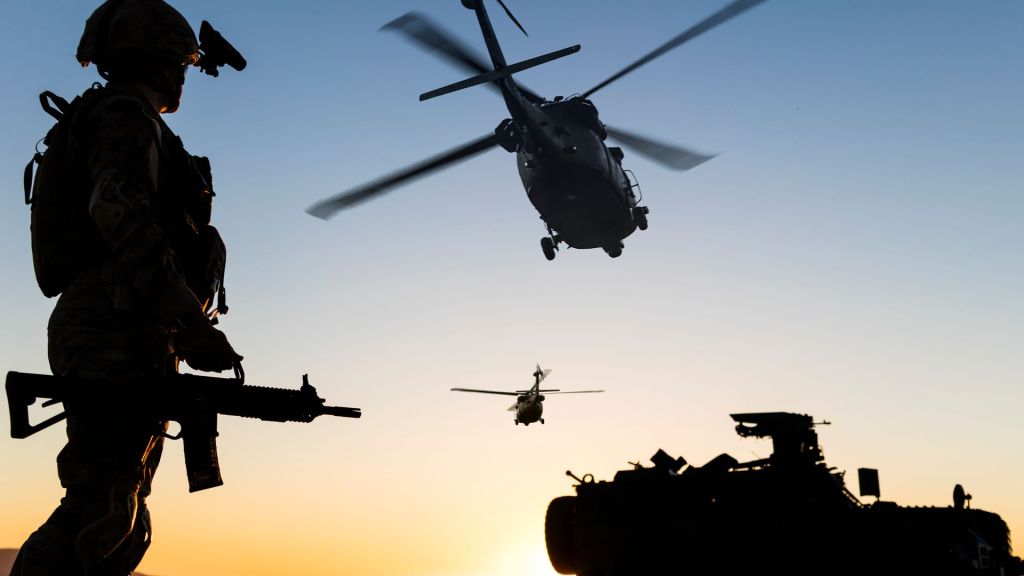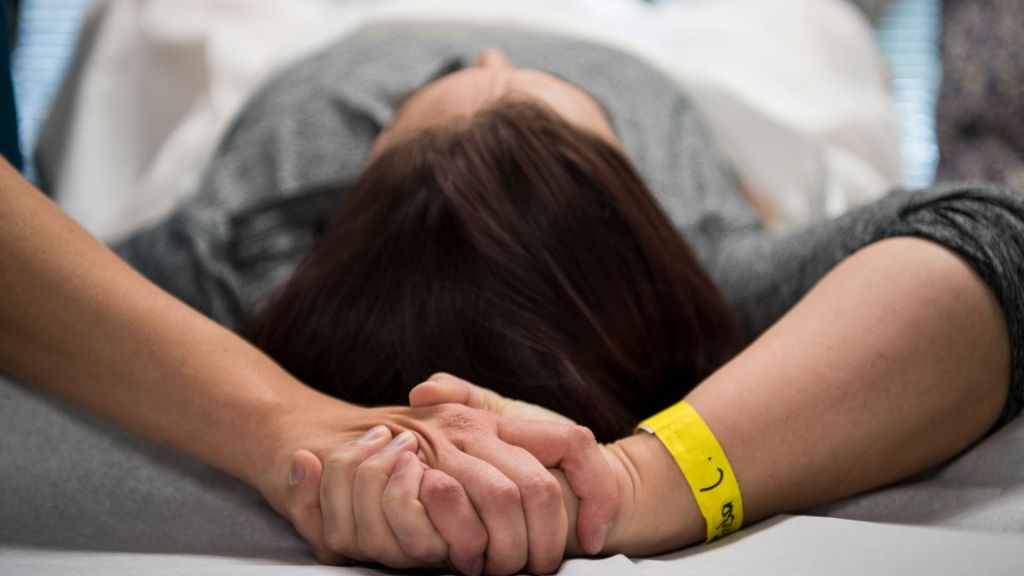
Commentary
-
Our commentary partners will help you reach your own conclusions on complex topics.
On September 11 2001, I was in college, and I woke up way before I had class because I had this dream where I died in a fiery explosion, and ended up sitting on a hilltop looking down at the burning wreckage below. And it was very jarring and made me believe in collective energy.
Anyway, I was awake when my father called me from New York to tell me that a plane had hit one of the towers. And then I was on the phone with my mom, also in New York when the first tower fell. And I’m watching this mushroom cloud of debris go out over Lower Manhattan, and I’m screaming at her to run, run out of town.
And she’s fine. My parents are fine. No one I know personally, was killed in the attacks. But my life changed that day, forever. I still can’t look at the images of the towers falling without this very visceral trauma response. And that makes sense. Of course it does. It was my first experience of collective trauma. And I had never experienced anything like it before. None of us had.
Except I’m used to this feeling now. It’s not a once every 20 years event, it’s weekly. And it still stops me in my tracks, but less so. The list of collective traumas we’ve experienced is long, updated with no longer startling frequency as images that were once resigned to the depths of our nightmares come alive in real time.
You know, we’re all sitting alone in our houses in our little work from home office setups and we’re holding our breath as we watch these previously unfathomable events unspool. And, and we’re, you know, we’re wishing we could hold the children that are crying or wishing we could rush to the scene and bandage the wounded, but we can’t.
And so we share the post. And we hope that that helps. After the 2016 events in Nice, France, when a terrorist drove a 19-ton truck into a Bastille Day crowd killing 86 people and injuring over 400, hundreds, I did this incredibly strange thing. It’s embarrassing. I went online, and I watched all these YouTube videos taken by people who were there before they were removed from the platform for being too graphic. It was awful. I will never get those images out of my head ever.
So why did I do that? What amounts to online rubbernecking? I’ve thought about this and I think that I I felt that somehow seeing this unsanitized unfiltered reality as horrifying as it was if I saw it I was protected. I guess I thought if I looked at the monster under the bed, it wouldn’t be as frightening.
But it was. The images of the falling towers, they live in my head. They make my heart pound, my throat tighten and they have company now. They have so much company. When I wake up in the morning I brace myself physically before I check the news, because I know that the chances of learning that another horror has unfolded while I was sleeping. High.
I did watch the video of Tyree Nichols. But I turned it off when he called out for his mother. My heart could not take it. Documenting human rights violations, documenting for the public the brutality that so many don’t have the privilege of turning a blind eye to, it is beyond necessary. It is essential. But I do think that for the sake of our individual and collective mental health there, there has to come a point where we recognize that our bodies and our minds, they are, they’re just not built for this.
And estimated 95 million photos and videos are uploaded to Instagram alone every day. That’s more than 1000 a second. We no longer receive our news and discreet you know bite size. End of the day moments we receive it as it’s happening with all the associated alarm bell ringing.
And we all know that the media profits off our attention. And what’s the best way to get attention? Make people scared. What I’m saying is not that we should turn a blind eye to injustice or brutality.
Of course not. I’m saying that as individuals, we have to weigh the importance of documentation and of knowledge and of understanding against the trauma of repeated exposure. Studies following terrorist events from September 11, to the Boston Marathon bombing have shown that children exposed to repeated media coverage of these events develop acute stress reactions and PTSD, even without personal knowledge of any victims.
It’s not just children that this is happening to. Our brains and yes, particularly this still developing brains of of our children are not set up for this constant onslaught of violent imagery. And we were absolutely suffering the consequences when it comes to our mental health. I feel it every day. I’m sure you do, too. I obviously think about this stuff a lot even more so now that my children are of the age where they have their own devices.
I wonder how to compartmentalize consumption so that this triggering content is viewed under the right circumstances in the right context. There is a time and a place for watching the video of Tyre Nichols crying out for his mother. And over your morning coffee, it’s just that’s not it.
So be activated, be aware of, be angry, but take care of yourself too.
-
RFK Jr.’s war on psychiatric meds risks decades of progress
On Feb. 18, during his first meeting with staff, Health and Human Services Secretary Robert F. Kennedy Jr. stated that he intends to address the possible overmedication of children and the risks of antidepressants — echoing a Trump executive order aimed at reducing childhood chronic disease rates. The order has sparked concerns over youth access… -
Loss of USAID makes America and the world less safe
Elon Musk and President Trump shocked the U.S. foreign policy community and America’s partners around the world with the early and abrupt closure of USAID, the United States Agency for International Development. USAID was a cornerstone of U.S. foreign policy and consistently received bipartisan support from Congress. Experts warned that the decision puts millions of… -
Trump’s ‘Gulf of America’ renaming is mere political spectacle
Aboard Air Force One, en route to the Super Bowl in New Orleans, President Trump held a news conference. As the flight entered international waters over the Gulf of Mexico, he issued an executive order renaming it the “Gulf of America” and declaring Feb. 9 as “Gulf of America Day.” The order, titled Restoring Names… -
President Trump politicizes DC plane crash as Americans mourn
Sixty-seven people died when a Black Hawk helicopter crashed into American Airlines Flight 5342 as it came in for a landing at Reagan National Airport on the night of Jan. 29 outside of Washington, D.C. Investigators are still examining the accident and putting details together, but believe that the helicopter was flying at too high… -
Project 2025 is Trumpism on steroids
President Trump has already taken several actions that align with Project 2025, a far-right blueprint for Trump’s second term developed by the Heritage Foundation. Among other intiatives, his administration has moved to eliminate DEI programs, reinstate service members dismissed for refusing the COVID-19 vaccine, and revive “Schedule F,” a policy making it easier to fire…
Latest Opinions
-
 Getty Images
Getty Images
San Francisco DA Charges 11 in SNAP fraud scheme involving $4M
-
 Getty Images
Getty Images
California’s minimum wage increase led to job losses, higher prices: Study
-
 Getty Images
Getty Images
Appeals court blocks Arizona’s proof of citizenship law, cites voter suppression
-
 Getty Images
Getty Images
‘The free world needs a new leader’: Trump-Zelenskyy make jaws drop
-
 Getty Images
Getty Images
Justin Timberlake cancels final US show in Columbus minutes before showtime
Popular Opinions
-
In addition to the facts, we believe it’s vital to hear perspectives from all sides of the political spectrum.






